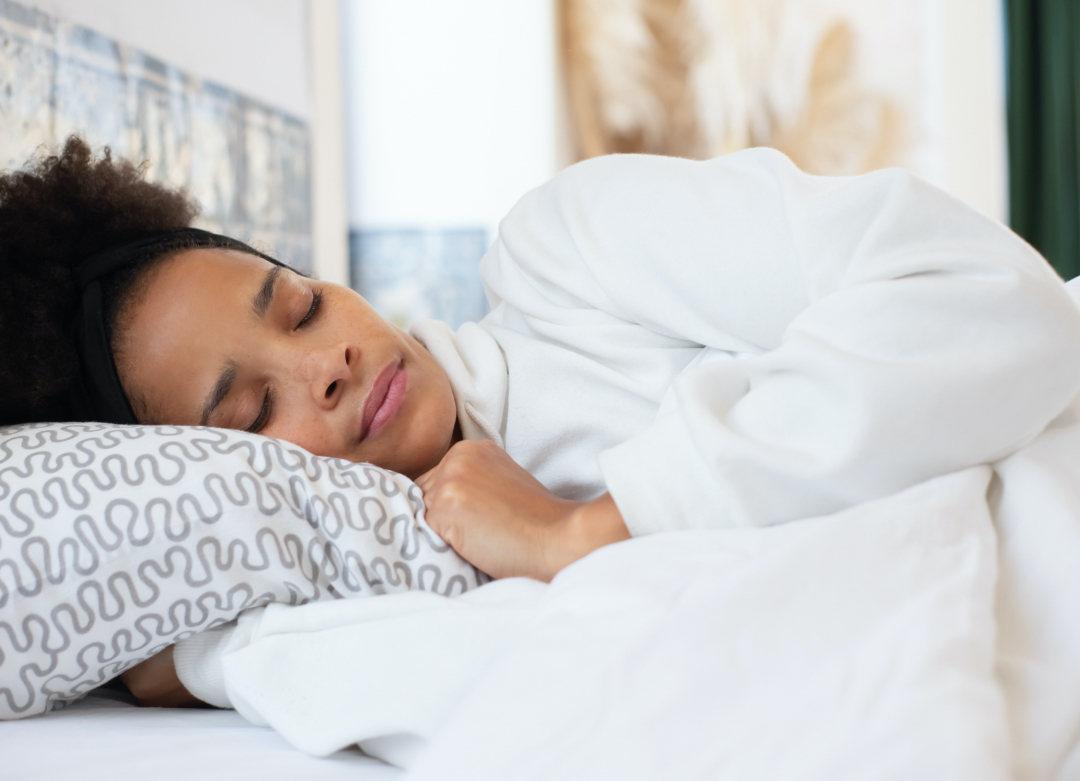We often underestimate the importance of a good night’s sleep, yet, sleep deprivation can adversely affect our overall well-being without us even knowing.
Several factors may contribute to insufficient sleep; some are as simple as weather changes or the usual day-to-day stresses or something out-of-pocket.
Are the hot nights keeping you from getting a good night’s rest? Are you preoccupied with end-of-the-year stresses that may be affecting your sleep quality? Do you wake up feeling refreshed and ready to tackle the day, or so tired that you can barely drag yourself out of bed? If the latter, you may be going short of quality sleep, a problem that extends beyond just feeling tired during the day to having an actual impact on your health.
The good news is that anyone, even poor sleepers, can learn to sleep better by eating well, exercising, adopting a calming bedtime routine, and changing their room into a calm zone.
We’ll highlight six areas to look into that may help get sleep patterns back on track and eventually have a good night’s rest.
1. Start sleep prep in the morning
Days characterized by too much stress, caffeine, alcohol, and time spent on gadgets can result in being so highly strung that it’s difficult to wind down at night.
For a calm, more mindful approach to life, start off every day with a guided meditation. It sets the tone for a balanced day, making you better equipped to handle and process whatever comes your way.
InsightTimer is a brilliant free app for anxiety, stress, and sleep, ideal to use both in the morning for calm and at night for better sleep.
It has thousands of free guided meditations, which you can search for by theme, length, or instructor, and features some of the best meditation teachers of our time, plus meditation sessions with celebrities known for their keen interest in mindfulness.
2. Pre-bedtime calm
Set yourself up for a good night’s rest by starting to wind down 90 minutes before going to bed.
Do non-stimulating activities – that means no TV thrillers before bedtime, staying off your phone, and making a conscious decision to park your worries.
A consistent, calming pre-bed routine can actually help your sleep improve. Take a bath, read a book, and spray your room with a calming lavender mist to help you switch off and relax.
Aim to go to bed earlier at least four nights every week, as pre-midnight sleep is deeply restorative, and on weekends switch off your alarm so that you wake up naturally.
We need seven to nine hours of sleep a night and the only way to do so is to give yourself enough time to get zzz’s in.
3. A dreamy mattress
A comfortable mattress can make all the difference to the way you feel when you wake up.
A good mattress supports your whole body as you sleep, keeping your spine in a neutral position.
You wouldn’t run a race without the right shoes or climb a mountain without the correct gear, yet despite the fact that we spend up to a third of the day sleeping, we often don’t consider how an old mattress, or one that isn’t offering adequate support, is affecting our quality of sleep.
With so many different types of beds to choose from, do research when choosing the bed that’s right for you.
If you suffer from back pain or allergies, for example, a foam or latex mattress might be your best bet, or perhaps a soft mattress doesn’t give you the adequate support, in which case a medium-to-firm mattress would be more comfortable.
4. A clean room promotes better sleep
You might not want to think about it, but sheets, pillows, and PJs can be full of dead skin cells, unwanted germs, and tiny dust mites that increase your risk of suffering from allergies, hay fever, and asthma, all of which make it difficult to breathe well while you sleep.
Additionally, the microorganisms in dead skin cells could cause health issues, so make sure to regularly wash your sleepwear and bedding and air your bedroom, advises Aisha Pandor, Co-founder of SweepSouth.
A dusty bedroom can also lead to breathing problems or health issues if there are bacteria or viruses in the air.
Bedroom curtains and pelmets are prime dust and allergen traps point out Aisha.
Wipe down the pelmets, then use your vacuum cleaner on a low setting to give your curtains a quick once-over.
If you have a clothes steamer, use it on your curtains once they’re dusted, to refresh them.
5. Turn down the heat
Feeling too hot at night can significantly disturb your sleep patterns.
Choose sleepwear in light natural fabrics like cotton or linen, as opposed to synthetic fabrics that will heat you up.
Sleep under a thin sheet or a light duvet made of natural fibers and invest in a fan to cool the air.
Avoid eating heavy meals close to bedtime, too, as eating pushes up your body’s core temperature while your metabolism works to burn the calories of what you’ve eaten.
6. Breathe it out
If the above isn’t working and you’re still awake while the rest of the world is caught up in dreamland, don’t feel anxious.
Calm your mind by deep breathing, with longer exhales than inhales for a few minutes.
Follow it by focusing on relaxing every part of your body, releasing tension as you go.
Feel the heaviness of your body in the bed and repeat the process from the start if needed. Soon, you’ll feel drowsy enough to drop off.
Getting a good night’s rest should be high on our agenda for a healthy lifestyle, and something we should all aim for every night of our lives.
Find an integrated approach that works for you and reap the many benefits of your body getting enough rest.




